Ahead of the upcoming Eastern Partnership Summit set for December 15 in Brussels the Russian International Affairs Council published an article - “Eastern Partnership in Post-Covid Era: Future Prospects for the Development of the Program.” Extracts from the article are presented below.
Identity Crisis
Initially, the Eastern Partnership (EaP) program, created on the initiative of Poland and Sweden, pursued the goal of economic rapprochement and acceleration of political association of the countries of the former USSR – Azerbaijan, Armenia, Belarus, Georgia, Moldova and Ukraine – with the EU. However, since the establishment of the EaP (March 2009), the situation in the region has significantly changed. After 12 years of its existence, the EaP is experiencing an identity crisis.
In the created situation, when one of the partners of the program suspended its participation in it (Belarus), the states forming the “Associated Trio” (Georgia, Moldova and Ukraine) are actively “pulling the blanket over themselves” and want to receive more bonuses due to their involvement in the process of European integration, and Armenia and Azerbaijan are in the stage of exchanging mutual claims, holding the EaP summit seems to be a very difficult task.
Search for new meanings
Communication and the search for new meanings and points of contact are vital for the continuation of the program in the post-covid era. Regarding the Trio, Brussels will try to play by its own rules, using various criteria for the effectiveness of the implementation of reforms in accordance with the provisions of the Association Agreements and will not rush into promises for future membership. However, potentially cooperation on trade and security issues may be enhanced.
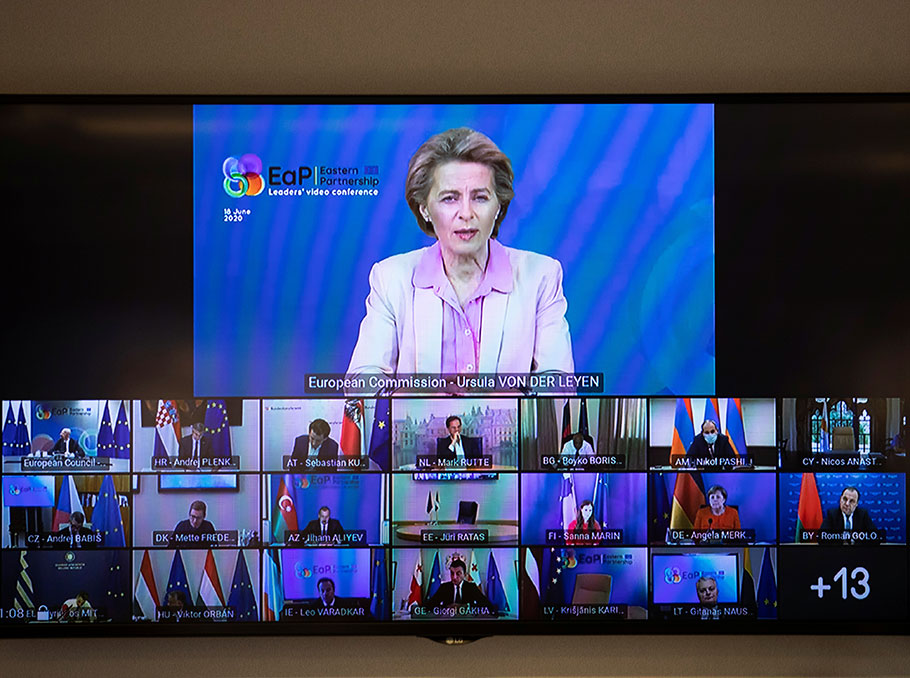
In the South Caucasus region, the course on building up contacts with Yerevan and Baku will be continued. Tbilisi, loyal to European officials, may become the main mediator in the process of rapprochement between Brussels and the Transcaucasian republics. The EU will still continue trying to find its niche in the post-war settlement process – providing financial and technical assistance in the restoration of border regions. Proposals are also being voiced from Brussels to transfer to the parties to the conflict the European experience on delimitation and demarcation of the border between the countries.
What has changed within the Eastern Partnership?
The fomat is no longer what it used to be, at least because Minsk officially announced the suspension of its participation, and the level of partners’ involvement in the work within the program is completely different.
On the one hand, there is a group of countries that are trying to become even closer to the EU in order to obtain membership in the future. To unite their efforts in this direction, they create a kind of “interest circles.” A vivid example of such a legally formed “circle” is the recently created association Associated Trio (Trio), which included Georgia, Moldova and Ukraine.
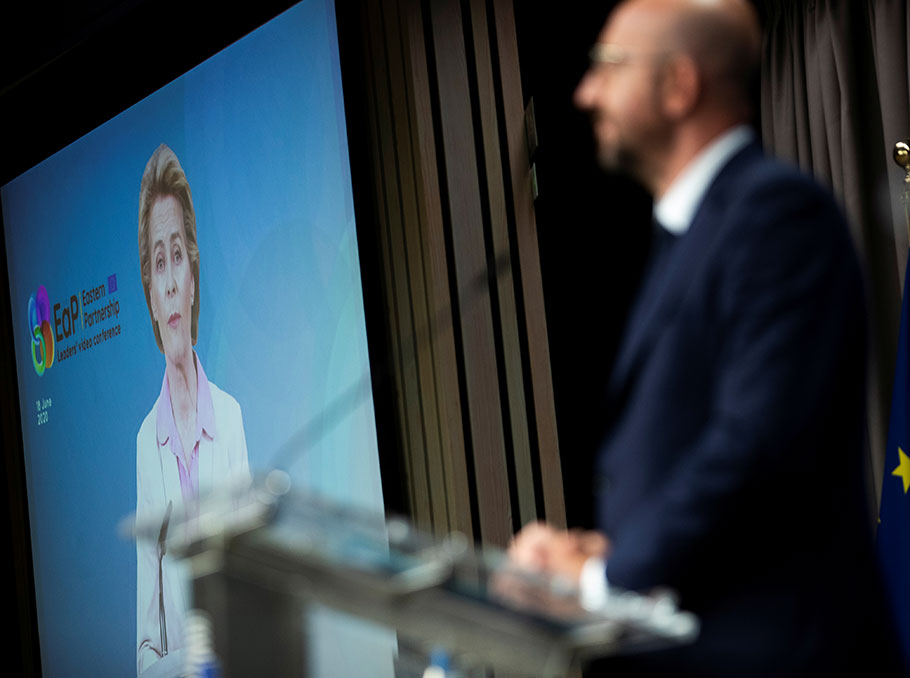
Azerbaijan still prefers to take a wait and see position. Unlike the Trio countries and Armenia, Baku has not yet concluded a new comprehensive framework agreement with the EU to replace the old 1999 Partnership and Cooperation Agreement. Negotiations on it have been going on for several years, statements have been made more than once that the text itself is already 90% ready and is in the stage of finalization. The protracted negotiation process on the document is explained by the sensitivity for Baku of the issues discussed within its framework – opening access to the European market for Azerbaijani products, primarily agricultural, the status of Nagorno-Karabakh and, in general, the nature of the process of settlement of the conflict in the region.
Brussels is looking for its place
The events of 2020 have made adjustments in relations between the EU and Azerbaijan. Against the background of increasing contacts between Baku, Ankara and Moscow, Brussels is forced to look for its place in this new system of regional coordinates.
In general, the role of the EU in the region has slightly decreased over the past year and a half. The reason for this was the behavior of Brussels during the “hot” stage of the military conflict in September-November 2020, including its inability to bring the two EaP partners to the table of negotiations.
The EU, apparently, will try to find its niche in the region, in particular, through the implementation of socio-economic projects with the joint participation of the parties to the conflict in order to move out Russia as the main mediator between the parties in the settlement of the Nagorno-Karabakh conflict. In addition, the future of the program itself will largely depend on the ability of the two countries to coexist within the EaP.
















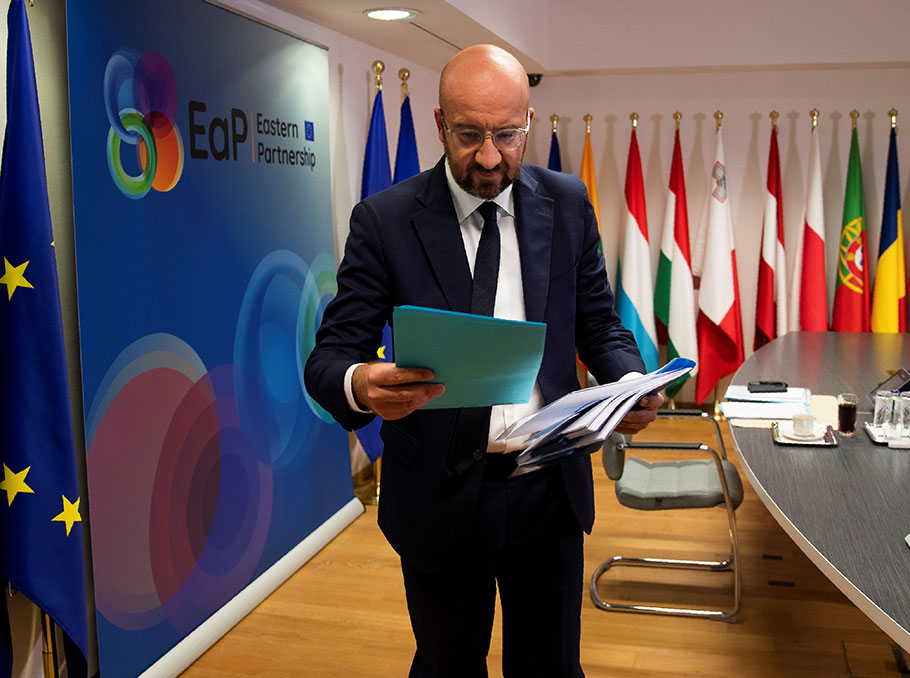

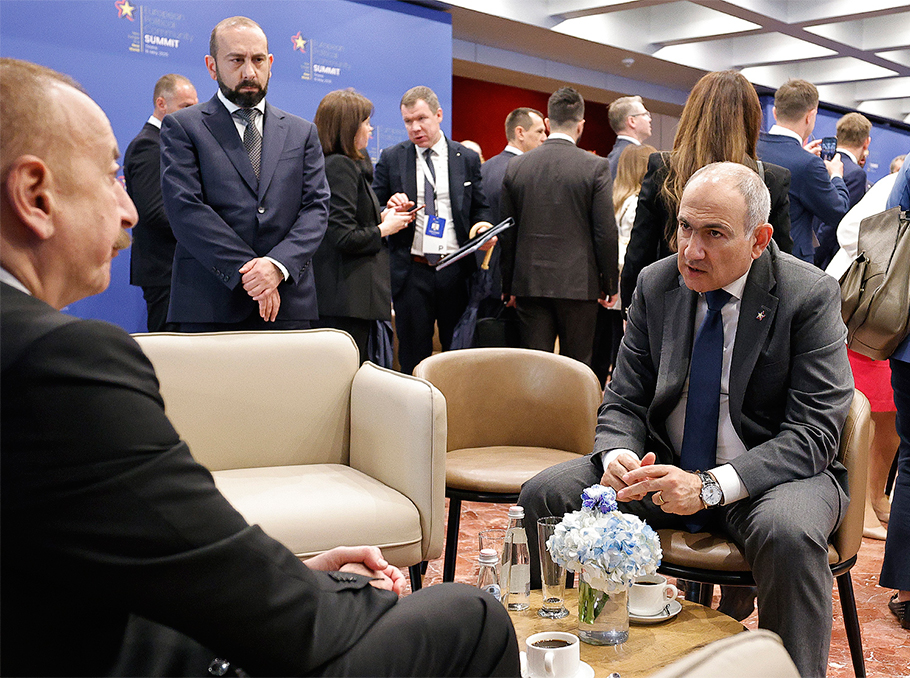
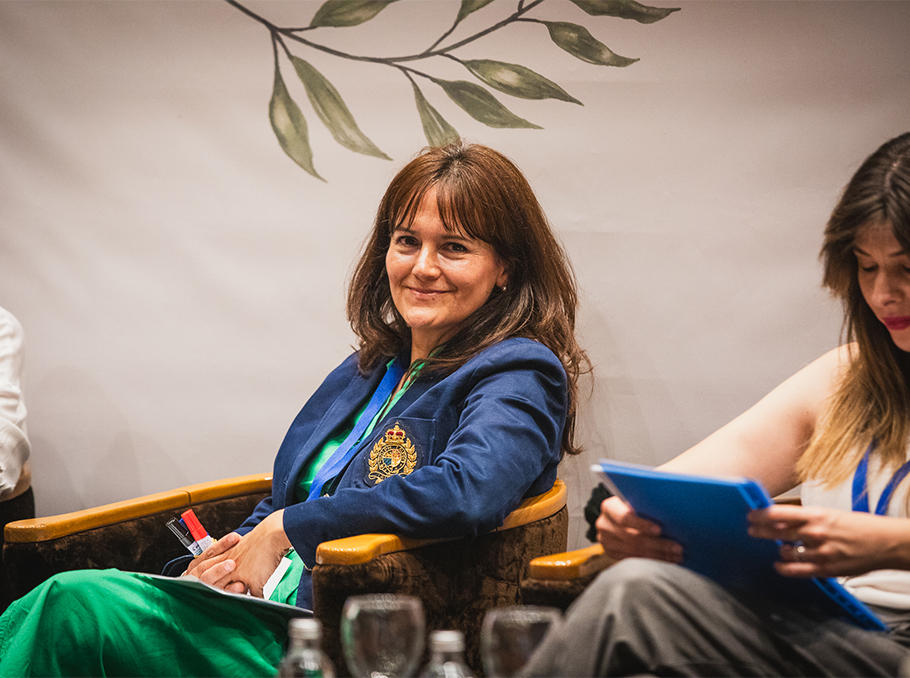
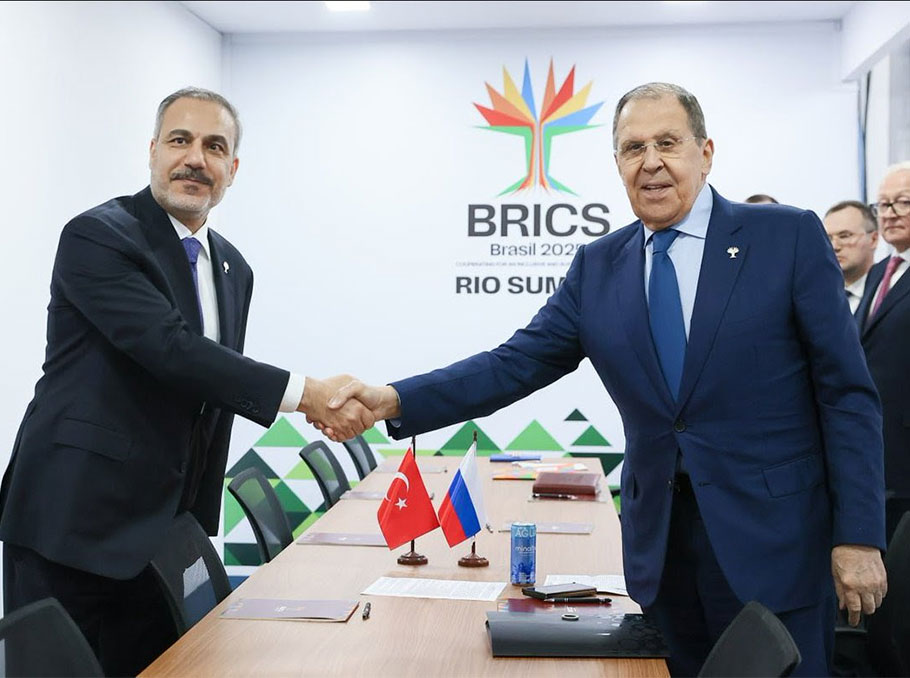






Comments
Dear visitors, You can place your opinion on the material using your Facebook account. Please, be polite and follow our simple rules: you are not allowed to make off - topic comments, place advertisements, use abusive and filthy language. The editorial staff reserves the right to moderate and delete comments in case of breach of the rules.